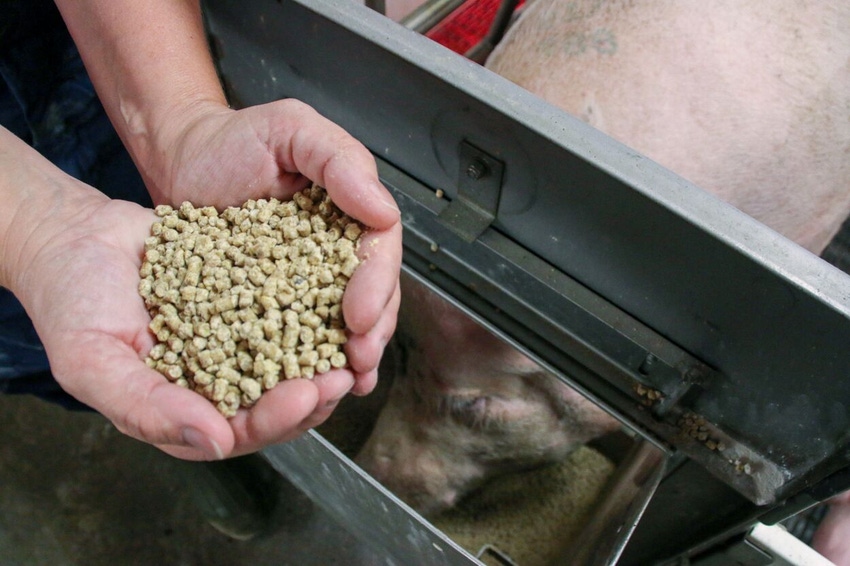Senate committee endorses new approval process for feed additives
Legislative Watch: Feed additives separate pathway approval from drugs; USDA working to fight misleading labels on animal products; SAFE Act of 2023.
June 16, 2023

On Thursday, Senate Health, Education, Labor and Pensions Committee voted in favor of a proposal to speed up approvals of new animal feed additives. The amendment was offered by Senator Roger Marshall (R-KS) and Tammy Baldwin (D-WI) during a debate to reauthorize the Animal Drug User Fee Act and Animal Generic Drug User Fee Act.
The amendment authorizes FDA to consider feed additives under a separate approval pathway from drugs. This process would be similar to how FDA currently evaluates dietary supplements and would be less cumbersome, time-consuming and expensive than the current drug pathway.
The new pathway would help farmers access products "with vital functions, such as reducing salmonella colonization in chickens and increasing milk production in dairy cattle," said Baldwin. "It would also put farmers at a disadvantage in competing on an international stage since products intended for the new FDA pathway are already being used around the world."
The House recently passed its own version of ADUFA and AgDUFA, but did not include language approving this new pathway. Both chambers are expected to consider their bills on the floor prior to the programs’ September 30 expiration.
USDA working to fight misleading labels on animal products
The proliferation of animal-raising claims on food labels has led to consumer confusion and the potential for misleading information. This week, USDA announced a new multi-step initiative to strengthen the substantiation of animal-raising claims such as "grass-fed," "free range," or "raised without antibiotics."
According to a USDA press release, FSIS, in partnership with USDA's Agricultural Research Service, will be conducting a sampling project to assess antibiotic residues in cattle destined for the "raised without antibiotics" market. The results of this project will help inform whether FSIS should require that laboratory testing results be submitted for the :raised without antibiotics" claim or start a new verification sampling program. FSIS will also be issuing a revised industry guideline to recommend that companies strengthen the documentation they submit to the agency to substantiate animal-raising claims. The agency plans to strongly encourage use of third-party certification to verify these claims. USDA may use these projects as the basis of a future rulemaking.
Agriculture Secretary Tom Vilsack said, "Consumers should be able to trust that the label claims they see on products bearing the USDA mark of inspection are truthful and accurate. USDA is taking action today to ensure the integrity of animal-raising claims and level the playing field for producers who are truthfully using these claims, which we know consumers value and rely on to guide their meat and poultry purchasing decisions."
Bill introduced to minimize trade problems with foreign animal disease
Representatives Randy Feenstra (R-IA) and Jimmy Panetta (D-CA) introduced the Safe American Food Exports Act of 2023 this week. The bill aims to minimize the impact of foreign animal disease outbreaks by allowing exports to continue from unaffected regions of the country. USDA would be tasked to work with the United States Trade Representative to preemptively negotiate regionalization agreements for known animal diseases.
USDA and USTR currently work together to minimize the impacts of foreign animal diseases, but the SAFE Act would formalize their authority to enter into these agreements. It also would ensure there is a system in place to notify the proper agencies, organizations, and State Departments of Agriculture that there have been changes in import or export status upon the outbreak of a disease.
Constance Cullman, president and CEO of the American Feed Industry Association said, "We thank Representatives Randy Feenstra (R-IA) and Jimmy Panetta (D-CA) for addressing this important issue to ensure our export markets for animal-based feed and pet food products remain open in the event of a foreign animal disease outbreak on U.S. soil. Animal-based feed and pet food are an integral yet often overlooked part of the food supply chain. We fully support this bill and efforts of the U.S. government to preemptively take steps now to prevent this situation and protect our economy."
The bill has also been endorsed by the American Farm Bureau Federation, Animal Health Institute, National Association of State Departments of Agriculture and others. A similar bill was recently introduced in the Senate by Sens. Tina Smith (D-MN) and Mike Braun (R-IN).
About the Author(s)
You May Also Like





